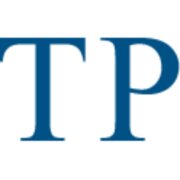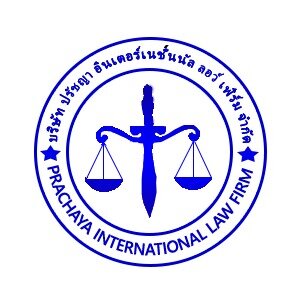Best Whistleblower & Qui Tam Lawyers in Huai Khwang
Share your needs with us, get contacted by law firms.
Free. Takes 2 min.
List of the best lawyers in Huai Khwang, Thailand
About Whistleblower & Qui Tam Law in Huai Khwang, Thailand
Whistleblower and qui tam laws are vital parts of Thailand's efforts to combat corruption and promote transparency within government and private organizations. In Huai Khwang, a bustling district in Bangkok, these laws give individuals the right and duty to report unlawful or unethical activities they observe within workplaces or institutions. Thailand has seen significant legal reforms aimed at protecting whistleblowers, especially as part of the country’s commitment to global anti-corruption standards. While Thailand does not have a direct equivalent to the US False Claims Act (commonly associated with qui tam lawsuits), it does offer protection to individuals who report wrongdoing under specific statutes and regulations.
Why You May Need a Lawyer
Reporting misconduct, fraud, or corruption as a whistleblower can be a daunting process. Common situations where you may require legal help include:
- Facing retaliation such as demotion, harassment, or termination after reporting wrongdoing
- Needing guidance on what evidence to collect and how to present it legally
- Dealing with complex internal investigations or hearings
- Understanding your rights under Thai law and local regulations
- Seeking anonymity and protection from the authorities after disclosure
- Initiating or joining a qui tam action, where you may be entitled to a financial reward for exposing fraud against the government
- Handling media inquiries or public exposure related to your whistleblower activity
- Ensuring that your complaint is taken seriously by the appropriate government agency
Local Laws Overview
In Thailand, including Huai Khwang, several key legal frameworks impact whistleblowers:
- Anti-Corruption Act (ACA): This provides the main basis for prosecuting corruption and protecting whistleblowers involved in such cases. Whistleblowers may be protected if their claims lead to the discovery or prosecution of corruption.
- Public Sector Whistleblower Protection Commission (PWC): This body helps ensure safety for whistleblowers acting in the public interest by offering legal safeguards, provided the whistleblower follows proper reporting processes.
- The Witness Protection Act: Offers physical protection and anonymity for those who act as witnesses in anti-corruption cases, which often includes whistleblowers.
Thailand does not have an explicit qui tam statute as found in some western legal systems. However, informants may sometimes be eligible for monetary rewards, depending on the nature of the case and the government agency involved. Reporting corruption and other crimes can trigger protective measures if the matter is reported properly and is of significant interest to public integrity.
Frequently Asked Questions
What is a whistleblower in Thailand?
A whistleblower is someone who reports illegal, unethical, or corrupt activities within an organization, agency, or government office. In Huai Khwang, whistleblowers help authorities combat corruption and fraud by providing inside information.
Is there a law that protects whistleblowers in Thailand?
Yes, Thailand provides legal protection to whistleblowers, mainly through the Anti-Corruption Act and the Witness Protection Act. Protections include confidentiality, job security, and sometimes personal safety measures.
Are whistleblowers at risk of losing their jobs?
Retaliation, including termination or workplace harassment, is a real risk. However, legal mechanisms exist to address such retaliation, and having a lawyer can help you enforce your rights.
Can I report wrongdoing anonymously in Huai Khwang?
Yes, certain government bodies allow anonymous reporting, especially if the safety of the whistleblower is at stake. Consult with a lawyer for guidance on how to do this properly to maximize protection.
What is qui tam, and does Thailand have such lawsuits?
Qui tam is a legal action where an individual can sue on behalf of the government for fraud and receive a portion of recovered damages. Thailand does not have a direct qui tam statute, but rewards can be issued in certain criminal or corruption cases depending on circumstances.
What evidence do I need to become a whistleblower?
Collect as much clear, factual evidence as possible: documents, emails, financial records, or communications that support your claims. A lawyer can help you review and organize this evidence legally.
Who can I report corruption to in Huai Khwang?
Depending on the nature of the wrongdoing, you may report to local police, the National Anti-Corruption Commission, or the Public Sector Whistleblower Protection Commission. Some government ministries also have hotlines and online portals.
Can foreigners act as whistleblowers in Thailand?
Foreign nationals can report misconduct if they observe illegal activity in Thailand. However, legal protection may vary, so it is crucial to consult with an attorney regarding your status and rights.
What are the risks of being a whistleblower?
Risks may include retaliation, legal threats, damage to reputation, or even physical danger in some cases. Thai law offers safeguards, but the protection is not absolute, especially if procedures are not closely followed.
How can a lawyer help me as a whistleblower in Huai Khwang?
A lawyer can offer advice on your rights, help you prepare your case, protect your confidentiality, act on your behalf during investigations, and support you if you face retaliation or legal challenges.
Additional Resources
If you need advice or assistance relating to whistleblowing or qui tam-like actions in Huai Khwang, consider the following resources:
- National Anti-Corruption Commission (NACC) - Main anti-corruption body for reporting government-related corruption.
- Office of the Public Sector Whistleblower Protection Commission (PWC) - Specializes in protection and guidance for whistleblowers within the public sector.
- Witness Protection Office, Ministry of Justice - Provides protection programs for individuals at risk due to their testimony or disclosures.
- Local Huai Khwang District Police
- Private legal firms and non-governmental organizations specializing in human rights and anti-corruption measures.
Next Steps
If you believe you have witnessed wrongdoing or wish to act as a whistleblower in Huai Khwang, you should:
- Consult with an experienced lawyer who understands whistleblower law in Thailand.
- Gather all relevant evidence while maintaining confidentiality.
- Determine the proper authority to report your claim according to the nature of the wrongdoing.
- Request protection as needed, especially if you fear retaliation.
- Follow your lawyer’s guidance to ensure your case is handled in compliance with Thai law and that your rights are preserved at every stage.
By acting with legal support and awareness of your rights, you can help combat corruption while safeguarding your personal and professional interests.
Lawzana helps you find the best lawyers and law firms in Huai Khwang through a curated and pre-screened list of qualified legal professionals. Our platform offers rankings and detailed profiles of attorneys and law firms, allowing you to compare based on practice areas, including Whistleblower & Qui Tam, experience, and client feedback.
Each profile includes a description of the firm's areas of practice, client reviews, team members and partners, year of establishment, spoken languages, office locations, contact information, social media presence, and any published articles or resources. Most firms on our platform speak English and are experienced in both local and international legal matters.
Get a quote from top-rated law firms in Huai Khwang, Thailand — quickly, securely, and without unnecessary hassle.
Disclaimer:
The information provided on this page is for general informational purposes only and does not constitute legal advice. While we strive to ensure the accuracy and relevance of the content, legal information may change over time, and interpretations of the law can vary. You should always consult with a qualified legal professional for advice specific to your situation.
We disclaim all liability for actions taken or not taken based on the content of this page. If you believe any information is incorrect or outdated, please contact us, and we will review and update it where appropriate.











